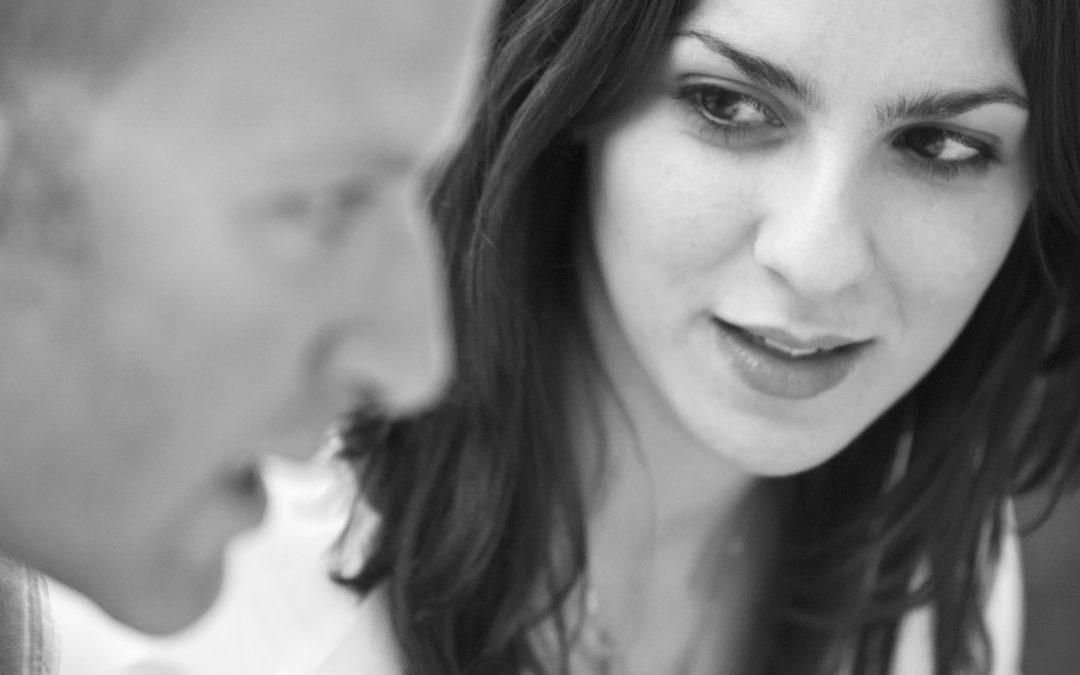Four of the more dreaded words to hear from someone who is important to us. When they have been directed at me, I feel a surge of heat go up my spine and experience a sense of dread. You know it’s not going to be your lover or spouse telling you how you have made her the happiest person on earth or a promotion.
Why do we have such a strong reaction? Because it has been conditioned in us from our personal experiences and those of our friends and loved ones since childhood. Whether it was heard from our parents, teachers, or significant others, it gets our attention quickly. We are brought to attention because it is a “crucial conversation, “ a reference to having to face someone’s disappointment, anger, hurt or frustration.
When I am on the receiving end, I feel fear, defensiveness, and catastrophize that my life will change in unforeseen and unpleasant ways. It may mean I have to change! Or, I am going to be held accountable for something that I am either unaware of or neglected, whether it is in one of my relationships, work performance, a tragedy that has occurred in my family or to a close friend, or learning that something I have yearned for is not to be.
Our reactions are tied to our need to feel good about ourselves, to feel capable. It is only natural to resist change being forced upon us. We don’t want to hear that we have hurt others, and most of all, we want to be able to stay in our comfort zone.
We spend the vast amount of our lives living in our comfort zones. Doing so enables us to more confidently venture out into the world, and make sense of our lives. It also gives us that very important sense of predictability and control over our lives.
Sometimes it is our staying in our comfort zone that provokes the utterance of these four words. Many times we may not even be aware we are in the zone. After all, we spend much of our waking hours on “automatic,” thinking as we always think and reacting as we always react. These four words immediately take us out of automatic mode, and depending on what comes next, may lead us into another kind of automatic reaction. I am talking about defensiveness, such as defending your position or trying to prove how the other person is wrong or has misunderstood your actions or lack thereof. For me, I am quickly putting up so many barriers that I don’t hear half of what is said. What I do hear often takes me to guilt and beyond. I am talking shame, which doesn’t mean my behavior is/was wrong (guilt), but rather that I am wrong, bad, stupid, insensitive or what ever my self – deprecating word of the day is.
If I am not hearing clearly what is being said, then I am more likely to jump to incorrect conclusions, or to misjudge the other person’s intent or objective. At this point I am likely trying to quiet my fear and not look guilty. Many will get mad at this point, thinking the best defense is a good offense. The story line here may be that she just doesn’t understand me, I never get appreciation, or enough is never enough to please him. The receiver of these of these words make make it much worse. How? By saying words like, “are you on your period? Or, did you forget to take your meds today, or are your hormones really out of whack? Not good.
Often we just want to get through this conversation in one piece. If so, then we are missing a golden opportunity. It is these crucial conversations that have the most chance of righting wrongs, of breaking through impasses which leads to healthier relationships. Will this upset our comfort zone? Quite possibly because you will now need to be more conscious, and meet that person at a place that feels more vulnerable, more loving and conveying a sense that what she/he is saying is important to you too.
What do you get out of this if you can do it effectively? A relationship that is more alive, more loving, more intimate (yes, I’m talking sex), and ultimately more mutually satisfying and happier.
Pema Chodron, among others, talks about the shortcomings of staying in our comfort zone. In so doing, we actually make our zone even smaller, and the older we get, the smaller it gets. This means that there is less and less we feel comfortable and want to do. We get more close minded, rigid in our beliefs, less likely to take risks to try new things, whether it is food, a hobby or activity , or meeting others. I am convinced that this is what leads to shorter lives, and lives more disrupted by fear, depression, and sadness.
Next time you hear these four words, try to stay present in your mind and not go on attack mode or defensiveness. It takes courage for someone to care enough to share their concerns with you, whether you believe they are valid or not. And most importantly, I guarantee that if you can work through it, you will feel more alive, more free, and full of life.

